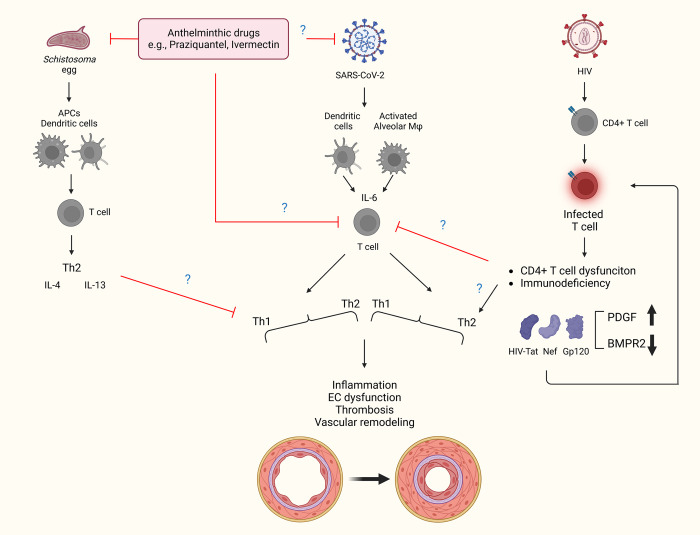Fig 4. The schematic shows the activation of immune cells and cytokines trigged following Schistosoma, HIV, and SARS-CoV-2 infection.
Schistosoma antigen is presented to dendritic cells that activates CD4 T cells to release proinflammatory IL-IL4 and IL-13 [129,252]. On the other hand, SARS-CoV-2 antigen is processed by dendritic and alveolar macrophages with the release of IL-6 cytokine that eventually favors Th1-induced cytokine storms [253,254]. Schistosoma or SARS-CoV-2 infection results into releases of Ly6c monocytes from the bone marrow compartment that drives inflammatory process [255,256]. Of note, coinfection with both Schistosoma and SARS-CoV-2 might lead to higher severe conditions. However, based on the recent report on less prevalence of COVID-19 in Schistosoma-endemic regions, there is a possibility that anthelminthic drugs such as praziquantel might have antiviral property to block the replication of SARS-CoV-2 or dampen the accumulation and production of IL-6, although this was not observed clinically for ivermectin [257,258]. Blockade of IL-6 might be helpful in mitigating cytokine storm and endothelial damage. The other possibility could be the counterbalancing of Th1-induced cytokine storm by the predominance of Th2 immunity due to prior Schistosoma infection. The overall effect of Schistosoma and SARS-CoV-2 coinfection on downstream pathological features such as endothelial (EC) dysfunction. HIV proteins are known to cause endothelial dysfunction and vascular remodeling [152,218,219] via skewing the Th1-Th2 balance. HIV viral proteins Tat, Nef, and gp-120 were reported to reduce BMPR2 expressions, while Tat and gp120 can induce expression of PDGF and involving in pulmonary vascular remodeling. Further detailed studies are required to answer whether preexisting chronic HIV infection is associated with prolonged inflammation in long COVID phase. Created with BioRender.com. BMPR2, bone morphogenetic protein receptor type 2; COVID-19, Coronavirus Disease 2019; IL, interleukin; PDGF, platelet-derived growth factor; SARS-CoV-2, Severe Acute Respiratory Syndrome Coronavirus 2.

